第8章 INTRODUCTORY NOTE(8)
But as these savages in educational matters are often civilised human beings in other respects, I should like to request them to think over the development of marriage from the time when man wooed with a club and when woman was regarded as the soulless property of man, only to be kept in order by blows, a view which continued to be held until modern times. Through a thousand daily secret influences, our feelings and ideas have been so transformed that these crude conceptions have disappeared, to the great advantage of society and the individual. But it may be hard to awaken a pedagogical savage to the conviction that, in quite the same way, a thousand new secret and mighty influences will change our crude methods of education, when parents once come to see that parenthood must go through the same transformation as marriage, before it attains to a noble and complete development.
Only when men realise that whipping a child belongs to the same low stage of civilisation as beating a woman, or a servant, or as the corporal punishment of soldiers and criminals, will the first real preparation begin of the material from which perhaps later an educator may be formed.
Corporal punishment was natural in rough times. The body is tangible; what affects it has an immediate and perceptible result. The heat of passion is cooled by the blows it administers; in a certain stage of development blows are the natural expression of moral indignation, the direct method by which the moral will impresses itself on beings of lower capacities. But it has since been discovered that the soul may be impressed by spiritual means, and that blows are just as demoralising for the one who gives them as for the one who receives them.
The educator, too, is apt to forget that the child in many cases has as few moral conceptions as the animal or the savage.
To punish for this--is only a cruelty, and to punish by brutal methods is a piece of stupidity. It works against the possibility of elevating the child beyond the level of the beast or the savage. The educator to whose mind flogging never presents itself, even as an occasional resource, will naturally direct his whole thought to finding psychological methods of education. Administering corporal punishment demoralises and stupefies the educator, for it increases his thoughtlessness, not his patience, his brutality, not his intelligence.
A small boy friend of mine when four years old received his first punishment of this kind; happily it was his only one. As his nurse reminded him in the evening to say his prayers he broke out, "Yes, to-night I really have something to tell God," and prayed with deep earnestness, "Dear God, tear mamma's arms out so that she cannot beat me any more."
Nothing would more effectively further the development of education than for all flogging pedagogues to meet this fate.
They would then learn to educate with the head instead of with the hand. And as to public educators, the teachers, their position could be no better raised than by legally forbidding a blow to be administered in any school under penalty of final loss of position.
That people who are in other respects intelligent and sensitive continue to defend flogging, is due to the fact that most educators have only a very elementary conception of their work.
They should constantly keep before them the feelings and impressions of their own childhood in dealing with children.
The most frequent as well as the most dangerous of the numerous mistakes made in handling children is that people do not remember how they felt themselves at a similar age, that they do not regard and comprehend the feelings of the child from their own past point of view. The adult laughs or smiles in remembering the punishments and other things which caused him in his childhood anxious days or nights, which produced the silent torture of the child's heart, infinite despondency, burning indignation, lonely fears, outraged sense of justice, the terrible creations of his imagination, his absurd shame, his unsatisfied thirst for joy, freedom, and tenderness.
Lacking these beneficent memories, adults constantly repeat the crime of destroying the childhood of the new generation,--the only time in life in which the guardian of education can really be a kindly providence. So strongly do I feel that the unnecessary sufferings of children are unnatural as well as ignoble that I experience physical disgust in touching the hand of a human being that I know has struck a child; and I cannot close my eyes after I have heard a child in the street threatened with corporal punishment.
Blows call forth the virtues of slaves, not those of freemen.
As early as Walther von der Vogelweide, it was known that the honourable man respects a word more than a blow. The exercise of physical force delivers the weak and unprotected into the hands of the strong. A child never believes in his heart, though he may be brought to acknowledge verbally, that the blows were due to love, that they were administered because they were necessary. The child is too keen not to know that such a "must" does not exist, and that love can express itself in a better way.